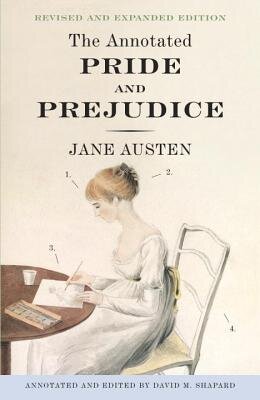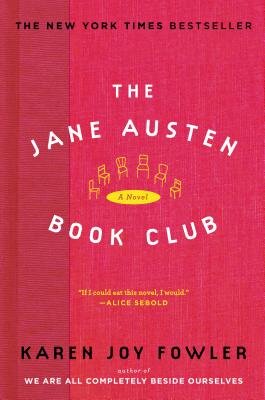Ditching Darcy
Pride and Prejudice by Jane Austen
Part 1
How Literature Can Show You What To Look For In Your Soul Mate
“She, like the rest of her family, was an avid reader of novels; throughout her letters she refers frequently to incidents and characters from novels, with the evident expectation that her correspondent will readily catch the reference.””
Was Jane Austen the original Gilmore girl?
Hear me out. Several things characterize an episode of Gilmore Girls. Yes, you gotta have coffee and pop-tarts, but it's the dialogue that stands out. The show was and is famous for its lightning-speed dialogue and extraordinary amount of pop-culture references, most of which are never explained. The literary references are, of course, the source for the Rory Gilmore Reading Challenge. But clearly, the Gilmores (Emily, Richard, and Gran too) were well educated in everything, not just books. They reference movies, TV, history, celebrities, politicians, music, and so much more.
I always thought that my tendency to describe my thoughts and feelings in reference to a book, TV show, or movie was inherited from the Gilmores, but upon opening my copy of Pride and Prejudice and reading the introduction, something I had not done back when reading it in high school, I learned that the Gilmores and I may have adopted this trait from one of the world’s most celebrated and well-known authors, Jane Austen.
Pin this to save this article for later!
It seems that Austen’s letters were full of allusions to the culture of their time and that she expected the reader to know the reference. Austen, Lorelai, and I know that this helps someone doubly understand the ramifications and undertones of any situation because if they understand the reference, it drives home the point in fewer words than it would have taken to explain the entire thing. (This can backfire a bit if your audience does not know the reference, perfectly shown by Taylor-jungle-gym-monitor Doose not understanding Lorelai’s references to Norma Rae but understanding the Molly Ringwald one.)Luckily, I have the annotated version of Pride & Prejudice, so every reference to Victorian England was thoroughly explained (and I do my best to give you the source of everything I reference).
She may or may not have been a fast talker, but Jane Austen did have the reference part of being a Gilmore down cold. But that’s not really what she’s known for. For many people, Jane Austen is an authority figure and expert on romance and relationships. And if there’s one area where the Gilmores do not do so well, it’s relationships. And, as in most things, you can consider me a Gilmore in this scenario too.
If we’re all so similar, why is there such a disconnect in the romance department? Could Austen be consulted to our problems? Luke read a self-help book to help him move his relationship with Lorelai from friend zone to almost overnight boyfriend, so why shouldn’t a book be able to help Lorelai, Rory, and me?
“It is a truth universally acknowledged, that a single man in possession of a good fortune, must be in want of a wife.” ”
For better or for worse, our society perpetuates the preference of the perfect couple, the idea that achieving couple status is the ultimate status we can achieve in this life. Now, I've got big dreams, many of them more career-driven than romantic, but for the sake of this blog post and this book, I’m going to put that aside for now.
When I was growing up, all the movies ended with a happily ever after kind of event that brings two people together in the love to rival all loves. And if the movies suggested any sort of excellence of couples, literature didn't do much better. Sure, not every book had a happy ending, many do not, but they still had an enormous emphasis on romantic relationships. And some of the most famous literature of all time? All focused on couples. Romeo and Juliet, and many of Shakespeare’s plays, Anna Karenina, The Great Gatsby, Wuthering Heights- all revolve around those great loves.
If so many movies, tv shows, books, and epic poems focus on the great loves, there must be something there, right? And we're not talking the awkward semi-relationships of tweenagers who barely talk to each other or touch each other. We’re talking about the “can't-eat, can't-sleep, reach-for-the-stars, over-the-fence, World Series kind of stuff”. The love of legends. The lovers that we still emulate and discuss and analyze centuries later.
Is it because the story is just that good? Is it because their love is so much greater than that which we experience in our own lives? Or is it because the beloved is a model of human excellence, a paradigm of what a lover should be? If that were the case, many would attribute that honor to one man in particular: Mr. Darcy. A quick internet search revealed 14 movies and TV series based on the novel. Add to that countless internet memes of Mr. Darcy and over 70 Pride and Prejudice retellings in book format (according to GoodReads). All furthering the cause of Mr. Darcy as the perfect man, and his courtship of Elizabeth as the perfect relationship.
“He [Bingley] is just what a young man ought to be, ‘said she ‘sensible, good humored, lively; and I ever saw such happy manners! - so much ease, with such perfect good breeding!’” ”
Marc Antony was never crowned with the ideal-man laurel, and there are just as many renditions of Antony and Cleopatra throughout the years. Even the almost universally liked Leonardo DiCaprio couldn’t make Romeo into the romantic idol that Mr. Darcy has achieved, with the help of Colin Firth and Matthew Macfadyen. It’s clearly not multiple TV and Film remakes or celebrity power that sets Darcy apart; it must be the way he was written, and we have Jane Austen to thank for that.
“… but his friend Mr. Darcy soon drew the attention of the room by his fine, tall person, handsome features, noble mien; and the report which was in general circulation within five minutes after his entrance, of his having ten thousand a year.” ”
Jane Austen’s Pride and Prejudice focuses on marriage. In Gilmore-speak, that would translate to, “Mawidge. Mawidge is wot bwings us togeder today.” In the novel, we have people overbearingly in favor of marriage, ambivalent or even disparaging about it, looking forward to it, staying away from it, and some who are just along for the ride. In our journey to nineteenth-century England, we are accompanied by the Bennet family. Elizabeth and Jane, the two eldest Miss Bennet's are the most likable and whom we are most partial to their inner thoughts and feelings. They are followed by Mary, Kitty, and Lydia: a trio of girls who respectively are fervently pious, uncontrollably flirty, and prone to follow bad influences. Mr. and Mrs. Bennet, are constantly at odds over their views and feelings on everything, including marriage, and provide an unoptimistic view on the central subject of relationships. Along the way, we meet Mr. Bingley and Mr. Darcy, suitors to Jane and Elizabeth. We are also introduced to Charlotte Lucas, Elizabeth’s friend, and the ridiculous Mr. Collins. All of the present couples and couples-to-be are compared and analyzed, their traits and interactions offered up as examples for the reader to classify the different kinds of relationships.
Just as it seems Mr. Bingley will propose to Jane, he and his party leave the area with no word as to when or if they’ll return. In the meantime, Elizabeth goes to visit Charlotte at her new home with Mr. Collins. And who would be visiting his wealthy Aunt who just happens to be a neighbor of Mr. Collins? Mr. Darcy, of course. Though Elizabeth and Darcy’s first meetings were full of witty barbs at each other, it is here that, on Mr. Darcy’s side at least, feelings have begun to soften to the point of acting upon them. And finally, Darcy executes one of the most awkward and insulting proposals in history, which Elizabeth unsurprisingly refuses.
“‘You could not make me happy, and I am convinced that I am the last woman in the world who would make you so.’””
Now, I don’t know how you may have managed to avoid the ending of this story because of the profusion of references out there, but just in case you have- spoiler alert ahead. Elizabeth and Darcy fall in love and end up together. With the simple magic of a long walk, the connection of Darcy and Elizabeth is born, and they take their place as the principal couple against whom all others are to be measured. Life and literature will never be the same.
If Darcy and Elizabeth are the life and literary standard, what does that mean for the Gilmores? And more importantly, since I can’t change any of the seven seasons that the show was on the air, what does that mean for me?
And if Mr. Darcy came out of a lake or walked through the pouring rain to speak with me, what would I say to him? If Mr. Darcy proposed- would I say yes?
Continue to Part 2
Recommended Reading
References:
It Takes Two (1995)
Romeo + Juliet (1996)
Gilmore Girls: Welcome To The Dollhouse
Gilmore Girls: Luke Can See Her Face
The Princess Bride (1987)
This page may contain affiliate links. For those purchases, the Gilmore Book Club receives a small commission- thanks!











